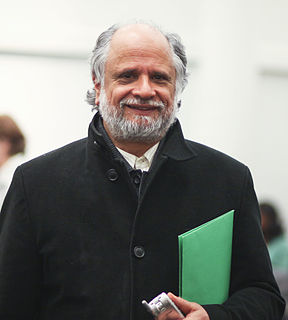A Quote by David Livermore
When you start paying attention to diversity, you notice it (and notice its absence!). And based on the culture of your upbringing and the culture of your organization, you may or may not be primed to think consciously about innovation.
Quote Topics
Related Quotes
The theoretical recognition of the split-space of enunciation may open the way to conceptualising an international culture, based not on the exoticism of multiculturalism or the diversity of cultures, but on the inscription and articulation of culture's hybridity. It is the inbetween space that carries the burden of the meaning of culture, and by exploring this Third Space, we may elude the politics of polarity and emerge as the others of our selves.
The most important thing you can do individually and organizationally is to pay attention to your own creativity. Sports psychologists call this muscle memory or paying attention to your perfect performance. In your own life you can notice when you do something that works right for you and celebrate it. The more you do this, the greater the probability that you will act creatively in future situations.
"Culture" is a new phenomenon, I believe. Culture is the new religion. People treat you based upon your culture. You are pushed to describe yourself by your culture: Kurdish or Turkish? Left wing or right wing? Progressive or conservative? Westerner or Easterner? European or Asian? So we have a label ready for you.
I know if I persist it will pay back in dividends and it always does. What starts to happen is like exercise, the pain goes away. It starts to get easier and the weight starts to get lighter and people start to notice a difference in you and you start to notice a difference in yourself. You find your ability to make decisions is easier; you find you are inspired more often. You find your success increases. You find that your random moments when you're in the flow are no longer random and you can control them. Other people notice the difference.
May God guide you on this path. May you understand that you are blessed children and you have a job to do. May you know in your heart that God belongs to you always, within and without. May your sorrows never touch your tomorrow, may your blessings be for all, may your happiness be shared, and may your smiles give hope to others.
If you want to correct your brother when he is doing wrong? you must keep yourself calm; otherwise you yourself may catch the sickness you are seeking to cure and you may find that the words of the Gospel now apply to you? 'Why do you look at the speck of dust in your brother's eye, and not notice the rafter in your own eye?'





































